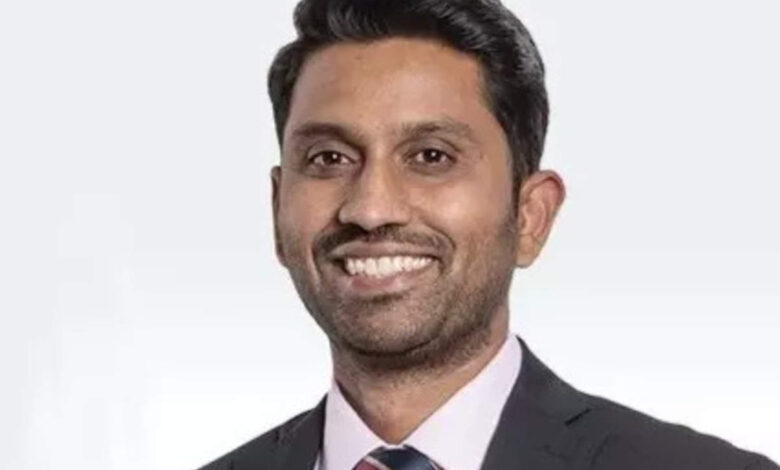Vijaykumar Dayinde, Malaysia Airports, ETCIO SEA

Vijaykumar Dayinde is the Chief Information Officer for Malaysia Airports. A dynamic and visionary IT leader, Vijaykumar Dayinde has been instrumental in overseeing the successful implementation of several key digital transformation projects to restore confidence in air travel through the implementation of contactless technology to provide passengers with an enhanced, safer and seamless airport experience and to elevate service standards, thus creating a more seamless guest experience at KL International Airport (KLIA). Vijay comes with over 23+ years of experience in IT strategy, planning, transformational delivery, and operations at different organisations around the world. In an exclusive interaction with us, Vijay shares his thoughts on areas tech leaders will be prioritising the most for spending this year and the impact of difficult global geopolitical conditions on IT budgets in 2024.
What is going to be your foremost priority this year as CIO of Malaysia Airports?
This year, our first focus is on enhancing the passenger experience using digital transformation. Secondly, it’s also on the commercial services as for airports, the aero and the non-aero revenues compete almost at similar levels of 50-50 percent each. The focus is how to improve commercial services by employing personalisation and analytics.
Underlying all this is the focus on technology, especially biometrics for self-service check-in and self-service bag drop, across our 39 airports throughout Malaysia. In addition, we are trying to transform our legacy check-in systems from over 20 years ago, also known as the Common Use Passenger Processing System (CUPPS). We are moving CUPPS from on-prem to cloud.
Also, when it comes to commercial activities, we want to move it to a centralised data processing, enabling automation for retailers in order to provide enhanced analytics to do upselling. This year, we also kickstarted ERP transformation as we move to SAP S/4HANA cloud solution.
Furthermore, data and analytics will be a continuous focus area for us. Also, along with all these digital transformation efforts, we cannot avoid the cybersecurity angle. So we are massively investing on the cybersecurity side, bringing in more controls, and enhancing protection through what we call the Cybersecurity Acceleration Program or CSAP. CSAP 1.0 is completed now and we are in the 2.0 phase.
Which technology are you the most excited about this year? How are you looking to implement it at Malaysia Airports?
Pretty much every CIO and CTO gets excited with all these emerging technologies-for instance nowadays everyone is excited about GenAI and trying to adopt it. What I feel is we need to be very much selective and strategic in choosing where we invest our time, money and resources. Because depending on the nature of our business and industry, not all technologies will be relevant. Hence, right use cases are very key.
For us, our focus is mainly on cloud technologies as I mentioned before-CUPPS and ERP migration. Because with the cloud infrastructures, we want to fast track digital transformation, while leveraging the flexibility and the scalability afforded by it. In fact, we managed to migrate three airports to the new check-in solution in less than two months. And our major thrust will continue to be on this.
Hence we are very clear that our architecture strategies will have to follow a cloud first design- it is our guiding principle for the Malaysia Airports Holding Berhad (MAHB) Airport 4.0 digitalisation drive.
Worldwide IT spending is expected to total $5 trillion in 2024, an increase of 6.8% from 2023, as per Gartner reports. While generative AI (GenAI) had significant hype in 2023, it will not significantly change the growth of IT spending in the near-term. Which areas do you think tech leaders will be prioritising the most for spending?
From Malaysia Airports’ technology point of view, the spending will be prioritised based on which digital transformation initiative will meet the business needs.It is important to prioritise the spend from the business outcome and business value point of view.
Also, we need to strengthen our assets in terms of the protection-so cybersecurity and data protection is another area which will see spending. Next up in the priority list will be innovative technologies such as GenAI.
Another important area where we will prioritise spending is reskilling and developing talent. As the technology shifts accelerate, it is a constant requirement to reskill the talent and make sure they adopt new skills.
Given the challenging geo-political conditions and another year of slow global growth in 2024, what do you think will be the impact on IT budgets?
Geo-political issues are indeed expected to impact global growth. Talking about Malaysia Airports, last year, we were able to achieve record profits post-pandemic. We almost booked half a billion Ringgit in profit before tax.
When it comes to IT budgets this year, I feel they must be prioritised for cybersecurity and risk management. Because while digital transformation initiatives are important, cybersecurity is a non-negotiable investment in order to survive through geo-political conditions and ensure business continuity. Threats will keep on mounting this year and that is unavoidable-hence cybersecurity budgets need to be prioritised.
Further, our focus will be on continuous spending on digital capabilities as they enable us to maximise operational efficiency and adapt to market dynamics. Of course, CIOs will always face challenges to get the required funds. My view is that we should map it to the clear value proposition and the business value, and in case it’s possible, also the ROI.



